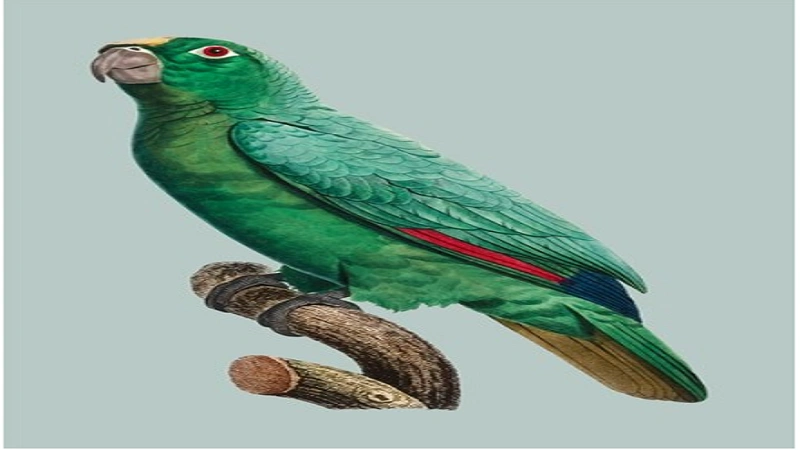In an era where sustainable solutions are more critical than ever, advanced technologies are reshaping waste management practices. Among the notable innovations, artificial intelligence (AI) is playing a pivotal role. Companies like Bollegraaf, Greyparrot, and Airivero are harnessing AI to optimize recycling processes, reduce costs, and promote environmental sustainability. This article explores how these firms are leading the charge in modern waste management, with insights on practical applications, challenges, and future possibilities.How Bollegraaf, Greyparrot, and Airivero Are Revolutionizing the Industry
Bollegraaf—Innovative Recycling Solutions with AI
Bollegraaf is a leader in designing and manufacturing sorting systems and recycling equipment. With decades of experience, the company has embraced AI to enhance its offerings. By integrating AI-driven sensors and robotic systems into sorting machines, Bollegraaf improves the efficiency and accuracy of material separation. This automation reduces dependency on manual labor and minimizes errors in sorting, a common challenge in traditional recycling facilities.
Practical AI Applications by Bollegraaf
- Automated Waste Sorting:
- AI-enabled vision systems detect materials based on their composition and physical properties.
- Robotics equipped with machine learning algorithms sort plastics, metals, and paper faster and more accurately.
- Data Analytics for Optimization:
- AI tools analyze operational data to improve plant efficiency.
- Predictive maintenance systems reduce downtime by alerting operators to potential equipment failures.
By adopting Bollegraaf’s AI-driven systems, recycling facilities can increase throughput, reduce costs, and achieve better resource recovery rates.
Greyparrot—AI Vision for Waste Recognition
Greyparrot is another innovative company applying AI to revolutionize waste management. It focuses on computer vision technology to analyze and sort waste streams. Their AI-powered solutions provide valuable insights that drive efficiency and sustainability.
Key Innovations by Greyparrot
- Real-time Waste Recognition:
- Greyparrot’s AI models identify different types of waste in real-time on conveyor belts.
- This recognition system classifies materials like PET plastics, glass, and cardboard with remarkable precision.
- Data-Driven Insights:
- The system generates detailed reports, offering actionable data to improve sorting strategies and enhance recycling rates.
- Enhanced Compliance and Transparency:
- The technology helps monitor waste composition, enabling facilities to comply with regulatory standards and enhance reporting accuracy.
Greyparrot’s advancements demonstrate how AI can transform recycling into a more data-centric industry, ultimately paving the way for smarter, more sustainable waste management systems.
Airivero—A New Name in AI-Driven Sustainability
Airivero is gaining attention as a newcomer pushing AI-based environmental solutions. Specializing in optimizing logistics and waste collection, Airivero uses machine learning algorithms to enhance route efficiency and reduce operational costs.How Bollegraaf, Greyparrot, and Airivero Are Revolutionizing the IndustryHow Bollegraaf, Greyparrot, and Airivero Are Revolutionizing the Industry
AI Applications from Airivero
- Smart Waste Collection Routes:
- AI optimizes collection routes by analyzing real-time traffic data and bin fill levels.
- Dynamic scheduling ensures fewer trips and reduced fuel consumption.
- Predictive Maintenance for Vehicles:
- Airivero’s systems monitor vehicle health, predicting maintenance needs to avoid costly breakdowns.
- Waste Stream Forecasting:
- Predictive models help municipalities and waste management firms plan for fluctuations in waste generation.
By leveraging Airivero’s tools, waste management companies can significantly cut down carbon emissions while saving on fuel and maintenance expenses.
Practical Steps for Implementing AI in Waste Management
For businesses and municipalities aiming to adopt AI-driven recycling solutions, consider these steps:
- Assess Current Operations:
- Conduct a detailed analysis of your existing waste management processes.
- Identify areas where automation and AI could yield the highest efficiency gains.
- Partner with Technology Providers:
- Collaborate with companies like Bollegraaf, Greyparrot, or Airivero to explore customized solutions.
- Invest in AI Training for Staff:
- Ensure that operators and staff are trained to work with AI-enabled systems.
- Monitor and Optimize Performance:
- Use data analytics to continuously refine processes and improve outcomes.
The Role of AI in a Sustainable Future
AI technologies, as demonstrated by Bollegraaf, Greyparrot, and Airivero, are reshaping waste management with smarter sorting, better logistics, and actionable insights. The Washington Post’s coverage of such advancements reflects the growing public and industry interest in leveraging AI for sustainability. The road ahead promises even more sophisticated applications, including fully autonomous recycling facilities and AI-driven policymaking for environmental stewardship.
By embracing AI, stakeholders can contribute to a more sustainable planet while reaping economic benefits. Companies and communities alike should recognize that the future of waste management lies in the fusion of technology and environmental responsibility.How Bollegraaf, Greyparrot, and Airivero Are Revolutionizing the Industry


